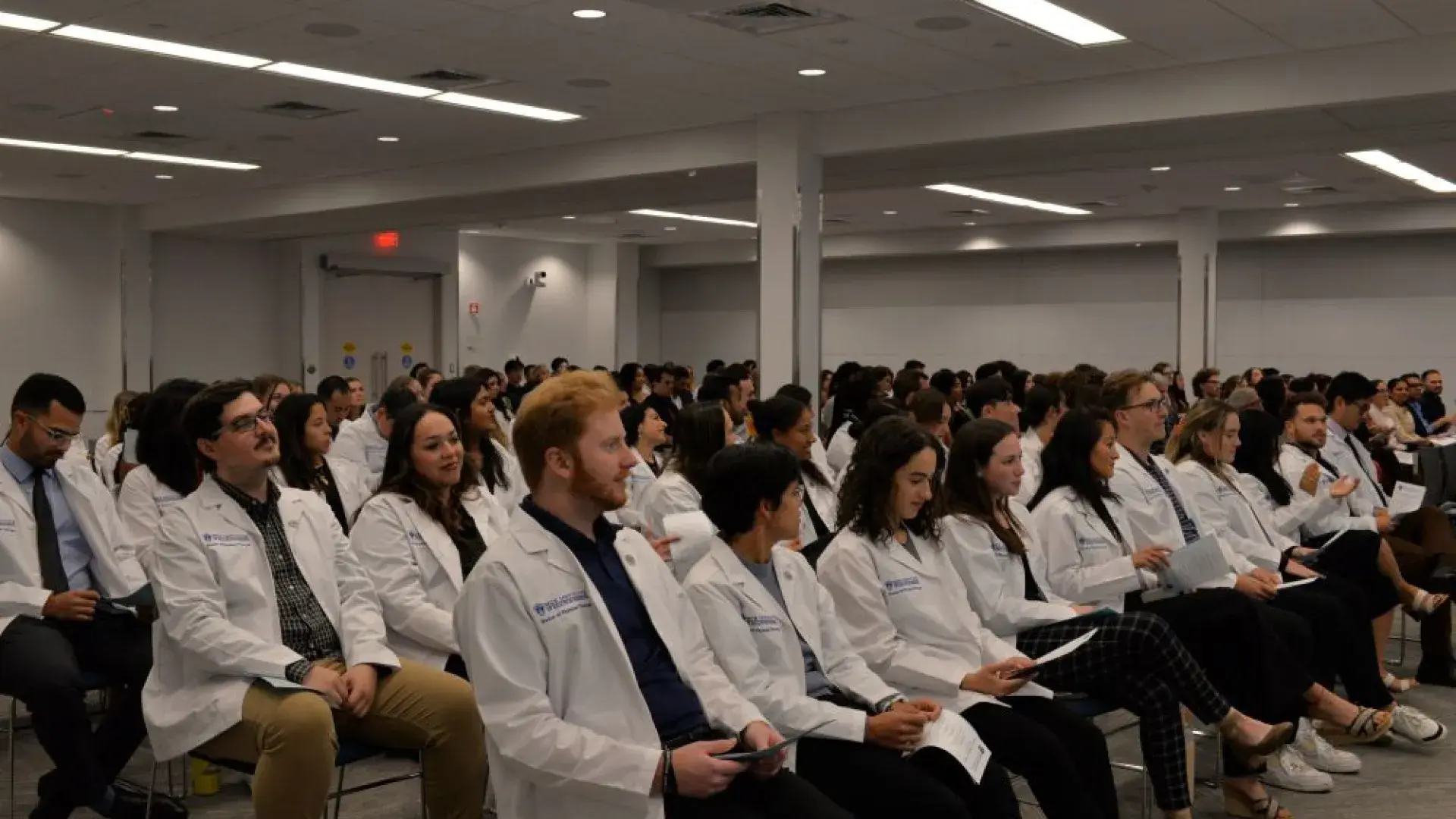
The DPT class of 2027 received some valuable insight into what it means to be a physical therapist as they marked their transition into the field during the White Coat and Pinning Ceremony last night in 1CW.
Before the students donned their white coats and received their pins, Keshrie Naidoo, the chair of the Department of Physical Therapy, opened the ceremony with a story about professionalism. She recounted a story of Devashish Tiwari, an associate professor in the PT department, who was helping a client in the Institute’s Marjorie K. Ionta Center for Clinical Education and Health Promotion who was in a wheelchair begin to walk by using a harness and ceiling lift system. She spoke of the skill and persistence needed by both the client and the physical therapist, which was more challenging because the client did not speak English. Fortunately, a second-year DPT student, Elizabeth Phan, offered to take the time to translate for the client, even though DPT students have little extra time.
That combination of caring and going beyond to help a patient were themes throughout the ceremony.
“It's the perfect combination of a job that requires you to understand the human experience and the art of communication, empathy, motivation, and yet also requires you to understand the sciences that are involved in movement so that you can help your patients to achieve the best outcomes,” said Laura Plummer, dean of the School of Health and Rehabilitation Sciences, where the physical therapy program resides. The class also heard inspiring stories from graduate speaker, Kayla Ucciferri (DPT 2024) and alumni speaker, Kamaria Washington, before the presentation of white coats and pins by the second-year students and the recitation of the pledge of professionalism.
The ceremony closed with remarks from Emily Smith-Sturr, MSPT, director of clinical education physical and occupational therapy at Mass General Hospital, who encouraged the students to, “seek out your community of learning, look for the people who will help you, keep reflecting on your practice, honing your communication, checking your biases, making better guesses and learning from your mistakes. With a group like that around you, nothing can stop you.”
